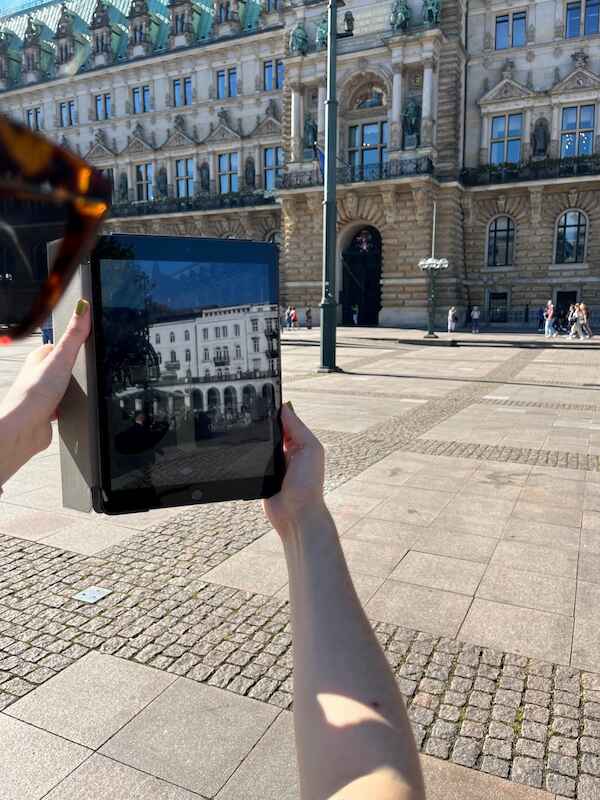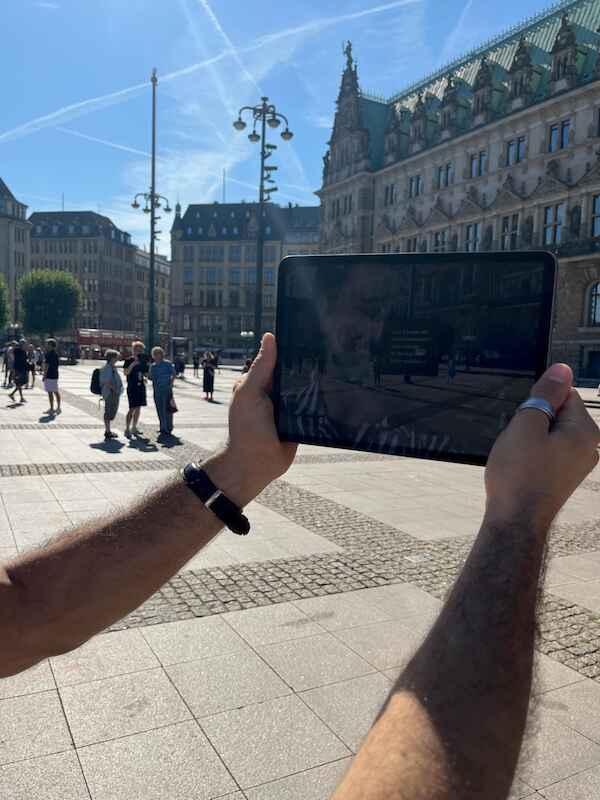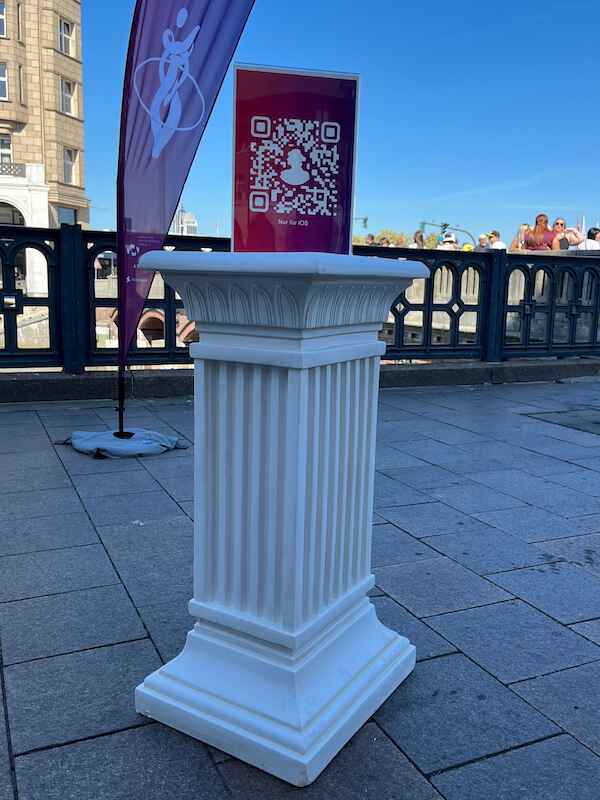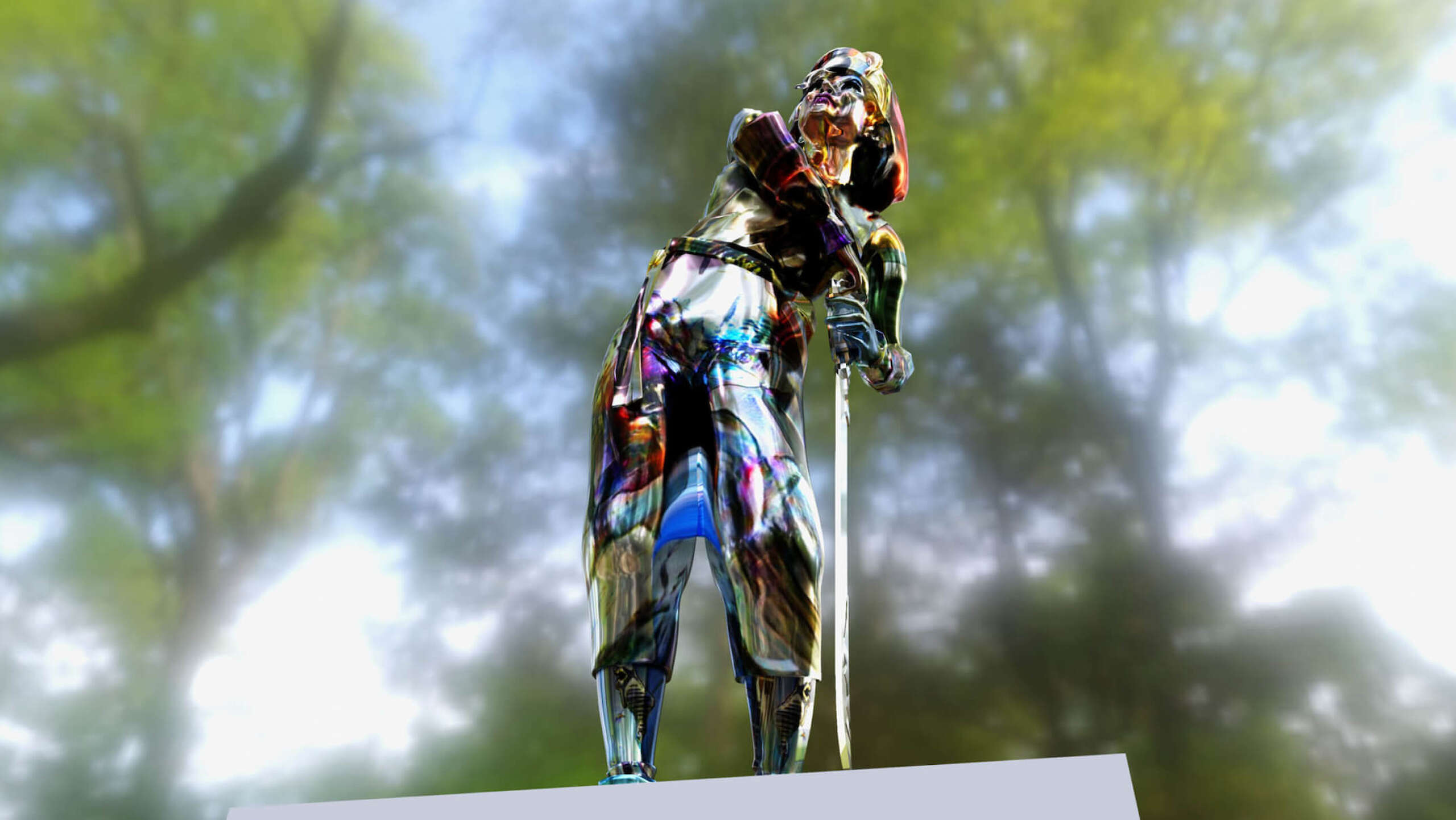
AR-Monument "G@r1B@ldA!" von Carla Gannis (2022) für ARORA NYC (Washington Square Park)
#MakeUsVisible - how modern technology helps inclusive commemoration
What do Munich, New York and Venice have in common? They are places full of monuments. But recently there has been more to see than dusty stone tablets: the artist collective Arora turns monuments into an augmented reality experience. Now we have launched the Hamburg Edition of modern remembrance culture.
Worldwide, around 90 percent of all monuments commemorate male, white persons. Where are the women? Where are non-binary people? BIPoCs? According to the #MakeUsVisible campaign, more monuments worldwide commemorate horses than women. We have taken this fact as an opportunity to unveil our AR- monument to women’s rights activist Lida Gustava Heymann in front of Hamburg City Hall on 9 September 2023, together with the Arora artists’ collective, i.e. artist Michelle Warsönke, and developer team Scavengar.
Until now, any culture of remembrance seemed to be set in stone. But modern technologies are challenging old structures, opening up a debate about how and who should be remembered in the future. Using XR technology, Arora has created new, virtual monuments to commemorate those who have been forgotten. To see the artworks in New York, Frankfurt and now Hamburg, all you need is a smartphone and a QR code – and the memorial is projected through the phone into the environment.
#MakeUsVisible in Hamburg

Now the eCommemoration programme of Körber-Stiftung brings Remembrance 2.0 to Hamburg. The young female artist Michelle Warsönke designed, with the help of modern technology, a modern memorial for Lida Gustava Heymann. In addition to presenting the artwork, we put our protagonist’s life into the spotlight. Heymann is a central figure of the women’s movement in the German Empire, which she however had to leave.
As early as 1923, she demanded Adolf Hitler’s expulsion from Germany. During Hitler’s “seizure of power” in 1933, she was on a trip abroad, from which she never returned to Germany. The library and all documents from the decades of work of Heymann (and of her work and life partner Anita Augspurg) for the national and international women’s movement were lost.
Heymann is a feminist, bourgeois and radical – but above all she should not be viewed uncritically. Heymann was criticized for anti-disability statements a few years ago. We address this ambivalence in the AR artwork. The monument thus makes an important contribution to a reflective culture of remembrance, a post-heroic culture, in which precisely these ambivalences are brought into focus. This way, we aim to stimulate the discussion about appreciation and critical examination of a person in our culture of remembrance. The memorial for Lida Gustava Heymann is designed to be interactive. All the possibilities that AR offers today are used to create an audio-visual experience for the viewers.
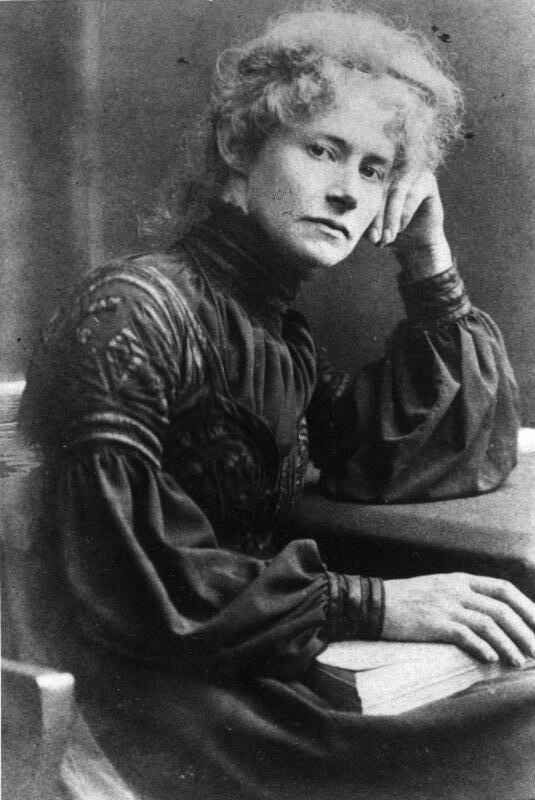
This sub-project of the #MakeUsVisible campaign, supported by Körber-Stiftung is carried out in cooperation with Landeszentrale für politische Bildung Hamburg. The campaign was initiated by the artists’ collective Arora, with conceptual and technical support from Scavengar.
